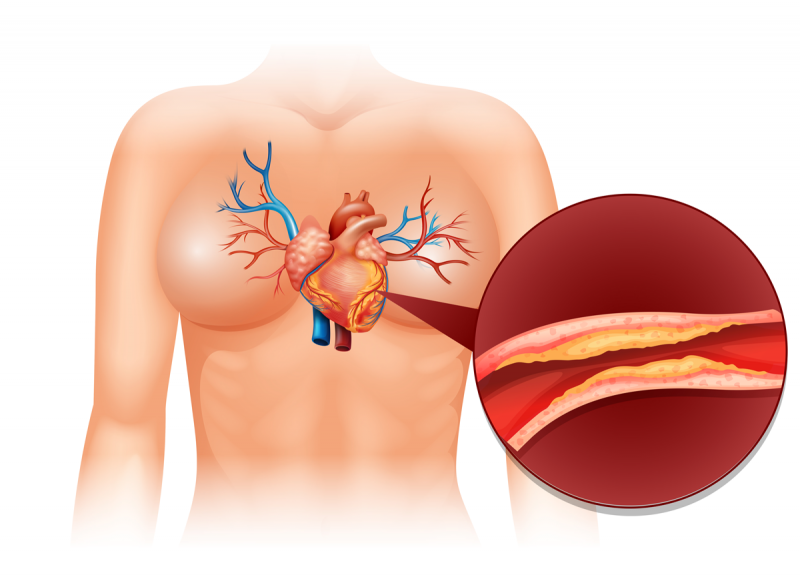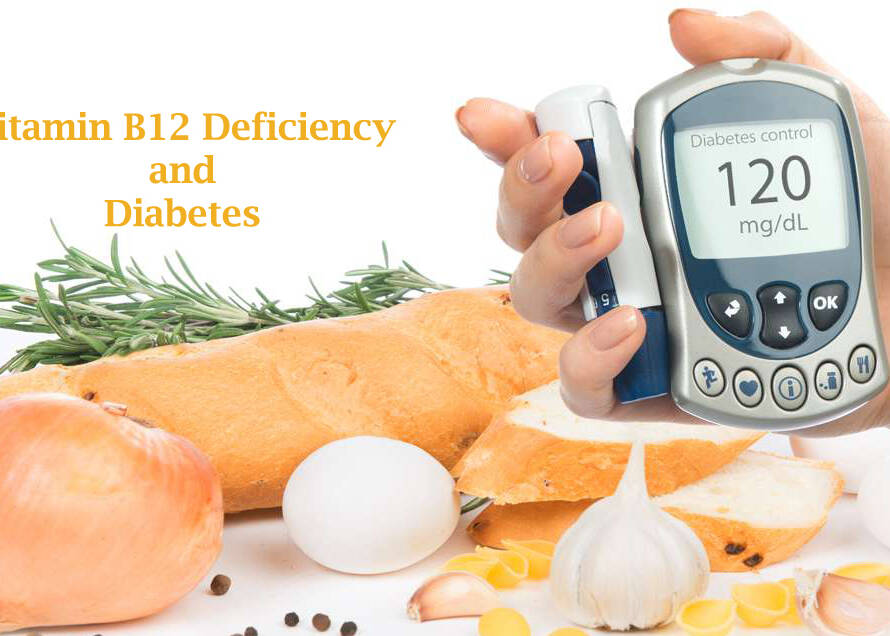Women’s health is about the prevention, screening, diagnosis and treatment of disorders that are unique to them. Polycystic ovary syndrome is a metabolic, hormonal and psychosocial disorder that impacts a woman’s quality of life. The information here aims to help you better understand this condition and manage it.
Polycystic Ovary Syndrome (PCOS)
Polycystic ovary syndrome (PCOS) is a common health problem caused by an imbalance of reproductive hormones in women of child-bearing age. It affects one out of 15 women, worldwide. The name PCOS describes the numerous small cysts (fluid-filled sacs) that form in the ovaries.
The hormonal imbalance creates problems in the ovaries. The ovaries make the egg that is released as part of healthy menstrual cycle. With PCOS, the egg may not develop as it should or it may not be released as it should. The ovaries, therefore contain many harmless follicles that are underdeveloped sacs in which eggs develop. These sacs are often unable to release an egg, which means ovulation does not take place.

The 3 main features of PCOS are:
- Infrequent, irregular or prolonged menstrual cycles
- High levels of “male” hormones in the body, which may cause physical signs such as excess facial or body hair.
- Enlarged ovaries containing many fluid-filled sacs that surround the eggs.
If you have at least 2 of these features, you may be diagnosed with PCOS.
Symptoms
Women with PCOS have a hormonal imbalance and metabolism problems that may affect their overall health and appearance. The common symptoms of the polycystic ovary syndrome are:
-
- Infertility (not able to get pregnant) because of not ovulating
- Infrequent, absent, and/or irregular menstrual periods
- Increased hair growth on the face, chest, back, stomach, thumbs or toes
- Cysts in the ovaries
- Acne, oily skin or dandruff
- Weight gain or obesity, usually with extra weight around the waist
- Male pattern baldness/ alopecia or thinning of hair
- Patches of skin on the neck, arms, breast or thighs that are thick and dark brown or black
- Excess flaps of skin in the armpits or neck area
- Pelvic pain
- Anxiety or depression.
- Sleep apnea- when breathing stops for short periods of time while asleep
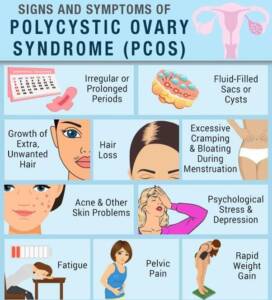
PCOS is linked to the development of other medical conditions, such as insulin resistance, type 2 diabetes, high cholesterol, high blood pressure, and heart disease
Who is at risk?
Women of all races and ethnicities are at risk of PCOS. Your risk may be higher if you have:
- Obesity: It can cause serious menstrual disturbances & hormonal imbalances.
- A sedentary lifestyle which can lead to obesity.
- Family history – a mother, sister or an aunt with PCOS.
- Between 15-30 years of age.
Cause
The exact cause of PCOS is not known. Factors that might play a role include:
- Excess Insulin – Insulin is the hormone produced in the pancreas that allows cells to use sugar, your body’s primary energy supply. If your cells become resistant to the action of insulin, then your blood sugar levels can rise and your body might produce more insulin. Excess insulin might increase production of male hormones, causing difficulty with ovulation.
- Low grade Inflammation – Research has shown that women with PCOS have a type of low-grade inflammation that stimulates polycystic ovaries to produce male hormones, which can lead to heart and blood vessel problems.
- Heredity- Research suggests that certain genes might be linked to PCOS.
- Excess Male hormones -The ovaries produce abnormally high levels of male hormones, resulting in excessive facial hair and acne.
What you eat matters if you have PCOS
- A high protein and low refined carbohydrate diet can help in dealing with insulin levels and weight issues. Healthy fats and good quality protein when combined with complex carbohydrates slows down the release of blood sugar and improves insulin response.
- Choose whole grains and whole grain products over refined carbohydrates. Whole grains such as brown rice, whole wheat flour, rye, barley, ragi, jowar, oats, buckwheat slowly release the carbohydrate which do not cause the blood sugar levels to rise rapidly.
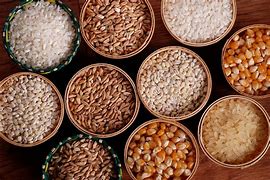
- Eat foods rich in resistant starch. Resistant starch is a type of carbohydrate that cannot be digested in the stomach or small intestine and reaches the colon intact. It helps feed the friendly bacteria in the gut and increases the production of short-chain fatty acids such as butyrate. It helps to improve insulin sensitivity and regulates hormonal balance. Foods that contain resistant starch include: cooked and cooled parboiled rice, cooked and cooled potatoes, unripe bananas, beans, peas and lentils, chana, rajmah, whole grains like oats and barley.
- Ensure you eat quality protein at each meal. Limit red meat: choose low fat dairy & products, pulses, legumes, seeds, poultry or fish instead, to help stabilize your blood sugar levels.
- Eat fruits & vegetables rich in fiber, vitamins, minerals & antioxidants. Fiber promotes bowel movements, helps manage your blood sugar levels and encourages elimination of toxic waste products. Vitamins, minerals and antioxidants support healthy functioning of the body as well as immune system. Leafy greens such as spinach is low in calories & high in B vitamins. More than 60% of PCOS women are deficient in B vitamins. Include cabbage greens, kale, mustard leaves, broccoli, cauliflower greens, radish leaves, zucchini and cucumber in daily diet.

- Choose healthy fats that are rich in omega-3 and omega-6 fatty acids. Eat oily fish (herring, mackerel, salmon, tuna, sardines, and trout), almonds, walnuts, avocados, chia seeds, flax seeds, sunflower seeds etc.
- Increase intake of soybeans, tempeh, miso, lentils, flaxseeds and chickpeas as these contain natural phytoestrogens which help balance hormone levels in the body.
- Ensure you drink enough water per day so that your urine is a very pale-yellow color. Enough water ensures daily bowel movements and helps to flush out toxins from the body. Skip sugary drinks and instead choose water, coconut water, buttermilk etc.
- Eat small, frequent meals to keep your blood sugar under control.
- Cut out caffeine and minimize alcohol intake.
PCOS & Exercise
Ensure you are exercising at least three times per week for twenty minutes to avoid being over-weight and to manage blood sugar levels. Losing weight is challenging with PCOS but doing so can help reduce the male hormone levels in the body. Ideally, you should be doing a combination of strength and cardio training as both of these types of exercises give different benefits. Cardio training causes your heart rate to rise and uses energy, increasing your total calories used, which will help with weight loss. Strength training on the other hand builds muscle which is important in raising your basal metabolic rate. This helps to burn more calories while at rest and while you are exercising.
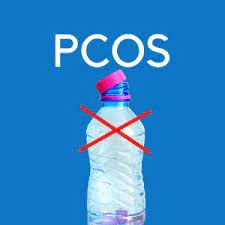
PCOS & Plastic
Plastic plays a serious role in aggravating the problem of PCOS. BPA or Bisphenol-A is one of the most consumed toxins found in several plastics and plastic additives. It leaks into food from plastic water bottles, containers and lining of many canned foods containers. It stimulates the ovaries to produce more male hormones which the liver is unable to cope with, gets inflamed and worsens insulin sensitivity. You can reduce the BPA exposure by storing food in metal, glass and ceramic containers, using a stainless-steel bottle for drinking water & buying BPA-free canned foods.
PCOS & Medical Therapy
There are a number of different medical therapies used for managing the different symptoms of PCOS including periods, fertility, excess hair, acne and weight. These therapies may include:
- Oral contraceptive pill
- Insulin sensitizing drugs like Metformin
- Testosterone lowering drugs
- Anti-depressants
- Anti-anxiety drugs
Managing PCOS
There is no cure for PCOS. Medication alone has not been shown to be any better than healthy lifestyle changes (weight loss and exercise). Many women with PCOS successfully manage their symptoms and long-term health risks by doing the following:
- Eating a healthy, well-balanced diet
- Participating in regular physical activity
- Maintaining a healthy weight
- Following a healthy lifestyle
Early diagnosis and long-term management can help control PCOS so that you can live a healthy active life and avoid long-term complications.


